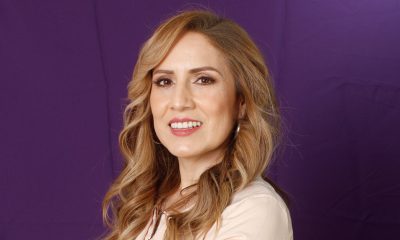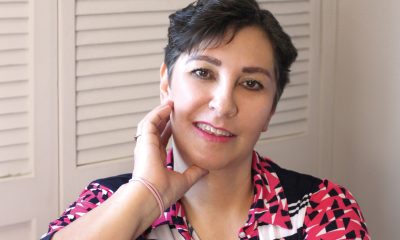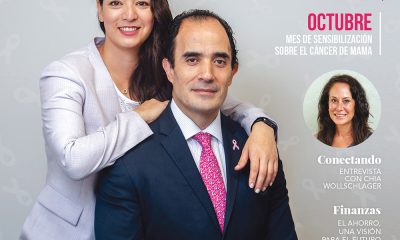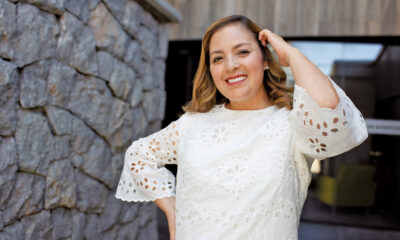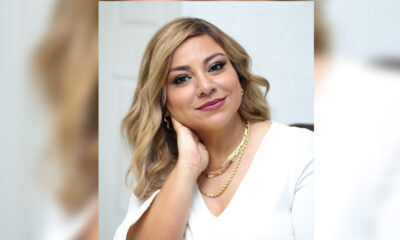El Diván
La inagotable lucha contra el cáncer de mama
Publicado
3 años antesel
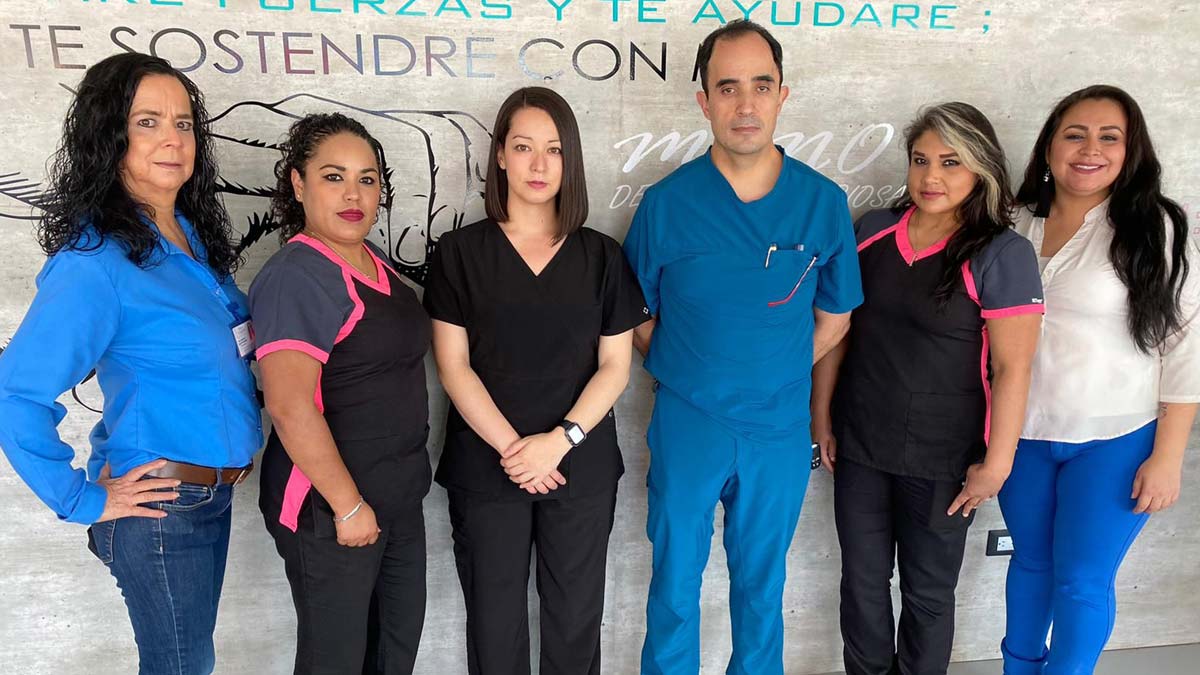
Como cada mes de octubre nos toca hablar del cáncer de mama y la inagotable lucha que día a día enfrentan mujeres de todo el mundo debido a esta enfermedad, misma que en México representa para el género una de las principales causas de muerte.
Según el Instituto Nacional de Salud Pública (INSP), en nuestro país la tasa de mortalidad por cáncer de mama es de 17.19 defunciones por cada 100 mil mujeres de 20 años o más.
Desgraciadamente, los fallecimientos provocados por este padecimiento han ido aumentando de forma alarmante, principalmente, por el retraso en el inicio del tratamiento, que a su vez podría deberse a la tardanza en la detección de este.
Precisamente, preocupados por la lentitud en la detección de la enfermedad que ataca a una de cada 8 mujeres en el mundo, hace dos años abrió sus puertas Ridacam, un centro de Radiología, Intervencionismo y Diagnóstico Avanzado en Cáncer de Mama, fundado por el mejor radiólogo intervencionista de la región, el doctor Ulises Barajas.
Ridacam cuenta con los aparatos más sofisticados en el área de la detección médica, entre ellos un avanzado mastógrafo que hace tres tipos de estudio diferentes, el convencional, el 3D –que ofrece hasta 300 imágenes del seno estudiado– y el contrastado, en el que se requiere de un líquido que provoca que los tumores brillen, haciendo más fácil su localización.
Además, se hacen estudios por ultrasonido –también de última generación–, que en el caso de las mamas permite distinguir cosas muy pequeñas, incluso tumores que no han dado ningún signo de alarma.
Con este aparato también se pueden realizar elastografías, que dan información sobre si el tejido encontrado es duro o suave, en el caso del primero se tendría sospecha de un cuerpo maligno, mientras que el segundo puede ser benigno, según nos explica Aki Cristina Aizawa, médico ultrasonografista y parte imprescindible de este lugar.
Sin llegar a la cirugía
Pero además de los novedosos aparatos, otra área de Ridacam que es realmente importantes es el Intervencionismo, con el que se pueden realizar procedimientos mínimamente invasivos y hasta se pueden llegar a evitar cirugías, por lo cual tampoco se requerirá hospitalización o anestesia general durante el procedimiento.
Desgraciadamente, a pesar de que en esta frontera existen lugares para realizar estudios preventivos, incluso sumamente avanzados como Ridacam, el realizarlos periódicamente no es una actividad prioritaria en las mujeres, por lo que, en la mayoría de los casos, cuando son detectados ya se encuentran avanzados.
Es por lo anterior, lo importante de hacerse el estudio cada año, sobre todo si se tiene más de 40 años de edad, se tengan o no síntomas.
Recuerda que el cáncer de mama se cura en más del 96% de las pacientes que son detectadas oportunamente, afirma la doctora Aizawa Estrada, quien agrega que “la paciente sólo viene a consulta cuando tiene algún síntoma”.
¿Qué sigue después del diagnóstico?
A diferencia de otros lugares, Ridacam cuenta con el Centro Integral de Acompañamiento al Paciente Oncológico (Ciapo), el cual ofrece asesoría nutricional, terapia física, terapia psicooncológica, asesoría genética, acompañamiento espiritual y terapia sexual, todo con el objetivo de que el paciente sepa qué hacer y cómo encaminar su vida durante el proceso de lucha contra el cáncer.
Ciapo cuenta con los especialistas mejor preparados para encaminar durante el proceso a la paciente y las personas que la rodean, pues algunos de ellos también han tenido que combatir la enfermedad. Cabe aclarar que aquí se atienden a personas con cualquier tipo de cáncer.
No dejarlo al final
Pero lo ideal es que ninguna tuviera que llegar a estas instancias, que estemos al pendiente de nuestros cuerpos y aunque no tengamos síntomas acudamos cada año a realizarnos los estudios pertinentes.
En Ridacam “lo que queremos es que ya no mueran más mujeres del estado de Chihuahua por cáncer de mama y la única forma de lograrlo es con la detección oportuna, hasta que se encuentre una vacuna o algo que lo prevenga, pero hasta entonces, lo que queremos es que no se nos mueran más pacientes y eso es a través de los estudios de imagen”, nos dice la médico ultrasonografista Aki Cristina Aizawa Estrada.
The inexhaustible fight against breast cancer
Every October, it is our turn to talk about breast cancer and the inexhaustible fight that women worldwide face every day due to this disease, which in Mexico represents one of the leading causes of death for this gender.
According to the National Institute of Public Health (INSP), the mortality rate due to breast cancer is 17.19 deaths per 100,000 women aged 20 years or more in our country.
Unfortunately, deaths caused by this disease have been increasing at an alarming rate, mainly due to the delay in starting treatment, which could be due to the delay in detecting it.
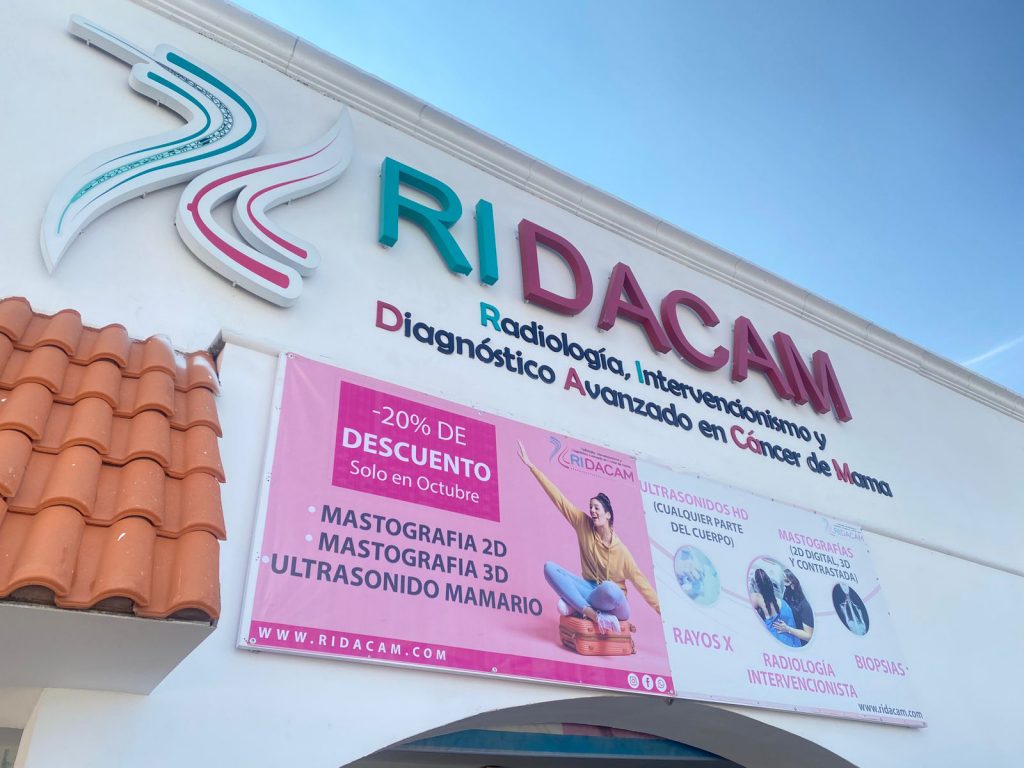
Concerned about the slowness in detecting the disease that attacks one out of every eight women in the world, two years ago, Ridacam opened a center for Radiology, Interventionism, and Advanced Diagnosis in Breast Cancer, founded by the best interventional radiologist in the region, Dr. Ulises Barajas.
Ridacam has the most sophisticated equipment in the area of medical detection, including an advanced mastograph that performs three different types of studies: conventional, 3D -which offers up to 300 images of the breast being studied- and contrasted, which requires a liquid that causes the tumors to shine, making it easier to locate them.
In addition, ultrasound studies are performed -also of the latest generation-, which in the case of the breasts makes it possible to distinguish tiny things, even tumors that have not given any sign of alarm.
With this device, elastography can also be performed, which gives information on whether the tissue found is hard or soft; in the case of the former, there would be suspicion of a malignant body, while the latter may be benign, as Aki Cristina Aizawa, ultrasound doctor and an essential part of this place, explains to us.
Without going as far as surgery
But in addition to the innovative devices, another area of Ridacam that is important is Interventionalism, which can perform minimally invasive procedures. Even surgeries can be avoided so that hospitalization or general anesthesia is not required during the process.
Unfortunately, even though there are places on this border to perform preventive studies, including highly advanced ones such as Ridacam, periodic screening is not a priority activity for women, so in most cases, when they are detected, they are already developed.
This is why it is so important to be screened every year, especially if you are over 40 years of age, whether you have symptoms or not.
Remember that breast cancer is cured in more than 96% of patients who are detected on time, says Dr. Aizawa Estrada, who adds that “the patient only comes for consultation when she has any symptoms.”
What happens after diagnosis?
Unlike other places, Ridacam has the Centro Integral de Acompañamiento al Paciente Oncológico (Ciapo), which offers nutritional counseling, physical therapy, psycho-oncological therapy, genetic counseling, spiritual accompaniment, and sexual therapy, to help the patient know what to do and direct her life during the fight against cancer.
Ciapo has the best-prepared specialists to guide the patient and people around her during the process, as some have also had to fight the disease. People with any type of cancer are treated here.
Not to leave it to the end
But the ideal is that none of us should have to go to these instances, that we should be aware of our bodies, and even if we do not have any symptoms, we should go every year for the relevant studies.
At Ridacam “what we want is that no more women in Chihuahua die of breast cancer, and the only way to achieve this is with timely detection until a vaccine or something to prevent it is found. Until then, what we want is that no more patients die, and that is through imaging studies,” says the ultrasound doctor Aki Cristina Aizawa Estrada.
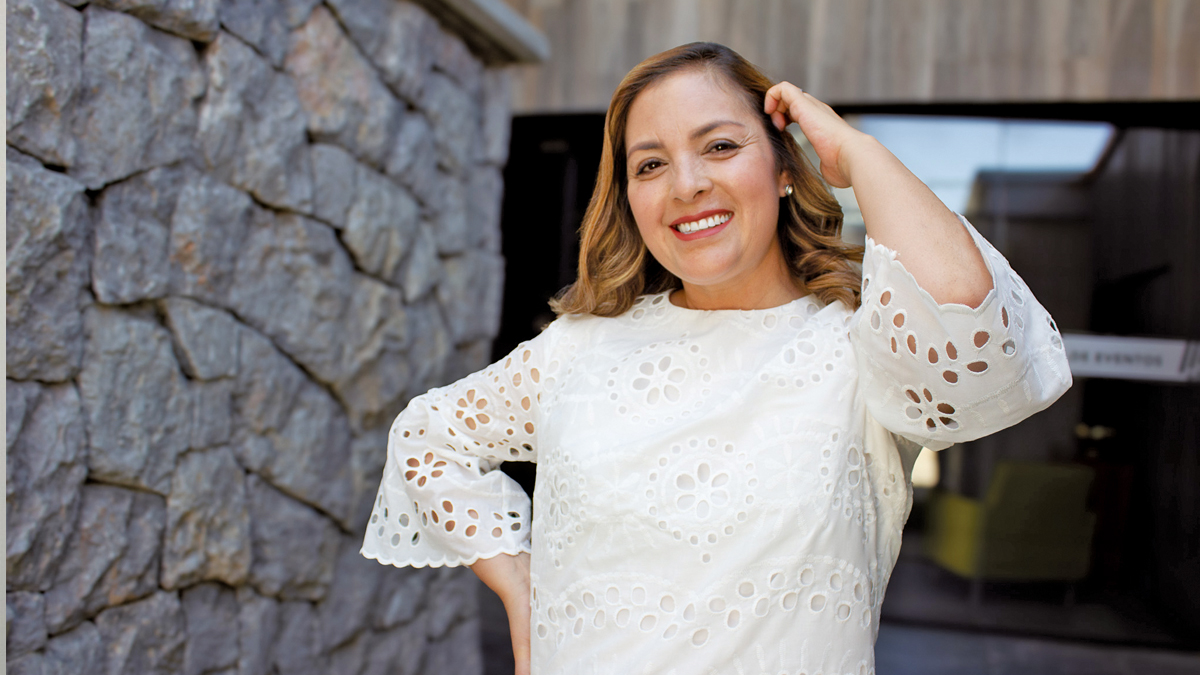
Ericka López, con 20 años de experiencia en el sector de la ingeniería, ha sido testigo de los cambios en la industria respecto a la inclusión de mujeres. A pesar de comenzar su carrera en un ambiente predominantemente masculino, Ericka ha visto cómo el número de mujeres en la tecnología ha aumentado significativamente.
Inicialmente trabajando como asistente financiero, Ericka se aventuró en la ingeniería y descubrió una pasión por el diseño y la construcción de tecnología para autos. A pesar de los desafíos y la lenta marcha hacia la igualdad, destaca la importancia de la confianza en las habilidades propias y la persistencia femenina.
Ericka asegura que uno de los mayores retos sigue siendo la disparidad salarial y la falta de oportunidades. Sin embargo, reconoce el progreso logrado y la importancia de que las mujeres se sientan capaces y motivadas para ocupar roles en ingeniería. Además, resalta cómo la organización, la planificación y la creatividad son puntos fuertes que las mujeres aportan al campo tecnológico.
Este mes, al celebrarse el Día del Ingeniero en México, Visionarias reconoce a las mujeres que han sentado precedente en este ámbito laboral y abierto camino a otras más.
“Hemos avanzado, a marcha lenta, pero hemos avanzado, lo importante es entender que si podemos hacerlo. Es muy común que nosotras mismas nos limitemos buscando ser perfectas y esa es una de las causas de la demora en el crecimiento, debemos liberar nuestro potencial siendo pacientes y buscando a largo plazo la perfección”, asegura Ericka, quien funge como Senior Program Management Specialist y coordina a un grupo de ingenieros en el Centro Técnico de México de Aptiv, una compañía de tecnología para la movilidad.
Además, es la líder en Juárez de la Red de Mujeres Técnicas en Aptiv, la ATWN, la cual busca inspirar a jóvenes mujeres a considerar carreras en ingeniería, demostrando que el campo es accesible y lleno de oportunidades.
Su historia es prueba de cómo la perseverancia, la formación continua y el apoyo entre mujeres pueden transformar industrias y romper barreras históricas, pero también un testimonio de que la fe en Dios y su Palabra llevan al creyente al sitio destinado para él.
Criada en un entorno cristiano, su fe ha sido una fuente constante de inspiración y resiliencia. A lo largo de su vida, ha dedicado tiempo a su iglesia, desarrollando su talento para el canto y asumiendo roles de liderazgo, el más reciente en la iglesia La Mies El Paso, en el 11440 de la calle Montwood.
“Siempre me ha gustado cantar, desde pequeña me sentaba al frente en la iglesia para ser la primera en pasar cuando invitaban a los niños a cantar”, recuerda mientras narra que después de la pandemia comenzó a escribir canciones y le pidió a Dios que guiara su camino para llegar a un sitio donde pudiera poner a su servicio sus talentos.
“Cuando lleguemos a rendir cuentas sobre los talentos que Dios nos ha dado, cuando nos pregunte qué hicimos con lo que nos dio, no quiero quedarme callada, quiero llevar mis manos llenas de frutos”, dice.
Ericka también refleja sobre el papel de la mujer según la Biblia, especialmente en el libro de Proverbios. La descripción de la mujer en Proverbios 31 como fuerte, valiente y sabia resuena profundamente con su propia experiencia. Ericka alienta a las mujeres a ser valientes y seguras, recordándoles que Dios ya está en el futuro y que tienen la capacidad de superar cualquier desafío.
La fe y el trabajo arduo de esta mujer son un faro de esperanza y un ejemplo poderoso de cómo la determinación y la fe pueden abrir puertas y crear oportunidades para las generaciones futuras.
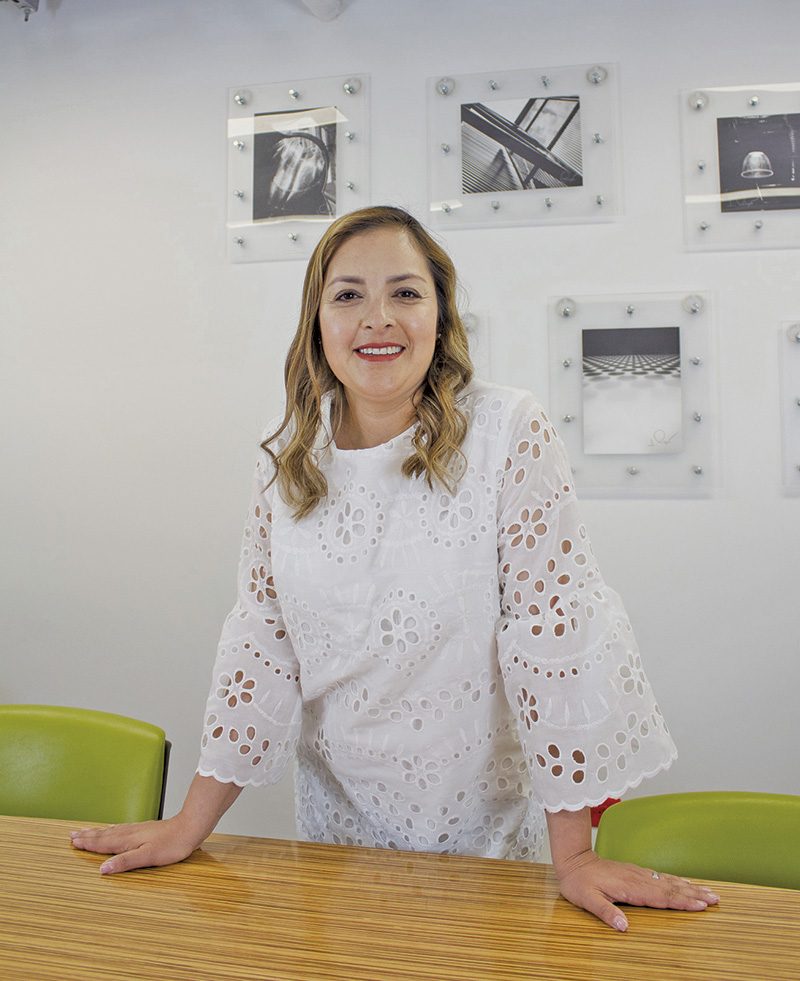
Ericka López: Breaking barriers
Ericka López, with 20 years of experience in the engineering sector, has witnessed changes in the industry regarding the inclusion of women. Despite starting her career in a predominantly male environment, Ericka has seen a significant increase in the number of women in technology.
Initially working as a financial assistant, Ericka ventured into engineering and discovered a passion for designing and building automotive technology. Despite the challenges and the slow progress towards equality, she emphasizes the importance of confidence in one’s skills and female persistence.
Ericka asserts that one of the biggest challenges remains the gender pay gap and lack of opportunities. However, she acknowledges the progress made and the importance of women feeling capable and motivated to take on roles in engineering. She also highlights how organization, planning, and creativity are vital points that women bring to the technology field.
As Mexico celebrates Engineer’s Day this month, Visionaries recognizes women who have set precedents in this professional field and paved the way for others.
“We have made progress, albeit slowly, but we have made progress. It’s important to understand that we can do it. It’s widespread for us to limit ourselves by seeking perfection, and that’s one of the reasons for the delay in growth. We must unlock our potential by being patient and striving for long-term perfection,” says Ericka, Senior Program Management Specialist, coordinating a group of engineers at Aptiv’s Mexico Technical Center, a mobility technology company.
She also leads the Aptiv Technical Women’s Network (ATWN) in Juárez, inspiring young women to consider careers in engineering and demonstrating that the field is accessible and full of opportunities.
Her story proves how perseverance, continuous learning, and support among women can transform industries and break historical barriers. It is also a testament that faith in God and His Word leads believers to their destined place.
Raised in a Christian environment, her faith has been a constant source of inspiration and resilience. Throughout her life, she has dedicated time to her church, developing her talent for singing and taking on leadership roles, most recently at La Mies El Paso Church, located at 11440 Montwood Street.
“I’ve always loved singing; since I was little, I would sit at the front of the church to be the first one up when they invited children to sing,” she recalls. After the pandemic, she began writing songs and asked God to guide her to a place where she could use her talents in service.
“When we are called to account for God’s talents, when He asks us what we did with what He gave us, I don’t want to remain silent. I want to have my hands full of fruit,” she says.
Ericka also reflects on the role of women according to the Bible, especially in the book of Proverbs. The description of a woman in Proverbs 31 as strong, brave, and wise resonates deeply with her own experience. Ericka encourages women to be courageous and confident, reminding them that God is already in the future and that they can overcome any challenge.
This woman’s faith and hard work are beacons of hope and powerful examples of how determination and faith can open doors and create opportunities for future generations.
El Diván
El reto de ser padre en la actualidad
Publicado
2 meses antesel
05/06/2024Por
Luz María Sotelo
El pastor Iván Reveles recuerda sus inicios y cómo ha sido su camino en el pastoreo dónde ayuda a otras personas a encontrar su propósito en la vida
En la edición del Día del Padre, Visionarias tiene la oportunidad de platicar con el pastor Iván Alberto Reveles Carbajal, quien nos relata cómo comenzó a predicar cuando solo tenía 10 años de edad.
Actualmente, está casado con Mariana Longoria Muñoz y tiene dos hijos, Levi y Luca, de 14 y 7 años, respectivamente.
Reveles Carbajal recuerda que cuando tenía 7 años entregó su vida a Cristo, luego de que una tía invitó a su familia a una iglesia cristiana, donde la maestra del ministerio infantil preguntó quién quería recibir a Jesús en su corazón, siendo El pastor Iván uno de los que pasó al frente y tras repetir la oración “Jesús y dijo amén”, sintió que algo invadía su cuerpo.
A partir de ese momento tuvo una transformación radical, pues era un niño muy rebelde, mal hablado y mimado por sus abuelos, además de que su padre le inculcaba que debía ser fuerte y no mostrar debilidad.
También recuerda que su tío era comandante de la Policía Judicial Federal, por lo que siempre había querido ser policía, pero él no quería que se involucrará en ese ambiente, así que frustró sus intentos de ingresar a la corporación.
Sus inicios
En una ocasión, nos comenta el hijo de Alberto Reveles Caraveo y Susana Carbajal Orozco, un predicador lo vio y le dijo que Dios tenía un propósito para él, oró por él y sus dones se activaron, comenzó a predicar; sin embargo, al inicio en su pastor no encontró una guía espiritual, sino una competencia espiritual.
Tras lo anterior comenzó a ir a diversas iglesias a predicar, apoyado por sus padres y posteriormente, del hermano Elías Serrano, quien lo ayudó, enseñó y viajó por muchos países, aprendió a estudiar la Biblia, la hermenéutica y a profundizar en el Evangelio. Y aunque buscó estudiar Teología en Ciudad Juárez, no pudo ingresar a ningún instituto, pues había concluido la preparatoria a los 16 años, luego terminó la maestría en Ministerio Pastoral a los 19 años.
Su idea era ya no predicar, pero entonces una misionera canadiense le dijo: “Dios dice que vas a ser pastor, te vas a casar muy pronto y tu esposa está en Ciudad Juárez”, tras un encuentro con Mariana, se enamoró de ella y a los tres meses se casaron.
Una vez casado, decidió poner una agencia aduanal, en un comienzo les fue muy bien económicamente, sin embargo, Dios le comenzó a hablar sobre el pastorado y le empezó a cerrar las oportunidades. En un sueño, le preguntó ¿por qué le había cerrado todas las puertas?, y él le respondió: “para que voltees al cielo, porque tu ayuda no está alrededor, soy yo”.
Así, a los 22 años comenzó con la iglesia con apoyo de su esposa, sus padres, hermanas, cuñada y suegra, de quien era la casa que utilizaba como iglesia.
Dios en su vida
“Dios para mí ha sido como un papá, ha sido mi mejor mentor y maestro, él ha estado en mi día a día”, dice el pastor, quien agrega que en sus primeros años en Dios escuchaba la voz que lo guiaba, y cuando su papá falleció, quien siempre fue su apoyo, comenzó a recorrer el camino de la orfandad, sin embargo, un día dejó de ver a Jesucristo como un jefe o un mentor y comenzó a verlo como un padre.
En la actualidad
El pastor consideró que actualmente se vive una etapa complicada, para el hombre y menciona: “yo tengo que formar esposos, padres, líderes, hombres de verdad, es una tarea de enseñarles cómo deben tratar a una mujer con respeto, con honra, que no es un objeto sexual y que no fue creada para su satisfacción”.
Por lo cual comenta “para mí ser hombre es una formación de carácter, por ello, hoy tiene una gran responsabilidad, ante el machismo y el feminismo”.
Además, dijo que como papá aconseja instruir y escuchar a los hijos, “no demos el consejo que no están pidiendo, invertir tiempo y no darles carta abierta en la tecnología, además de tener una mente más abierta, para apoyarlos y entender lo que están enfrentando en el mundo”.
Refirió que él con sus hijos diariamente ora con ellos, y luego ora por ellos, pues considera que el mundo “quiere tomar nuestro papel de padres, de formar y apoyar”, por lo cual, los padres y pastores deberían coadyuvar para ayudar a los hijos a encontrar su identidad y propósito en la vida.
Actualmente, el pastor Iván Alberto Reveles Carbajal lidera la Iglesia Cristiana “Linaje Bendito”, ubicada en la calle Melquiades Alanis no. 6485, San Lorenzo, Ciudad Juárez, Chihuahua. Bajo su guía, la iglesia continúa creciendo y ayudando a las personas a encontrar su propósito en la vida.
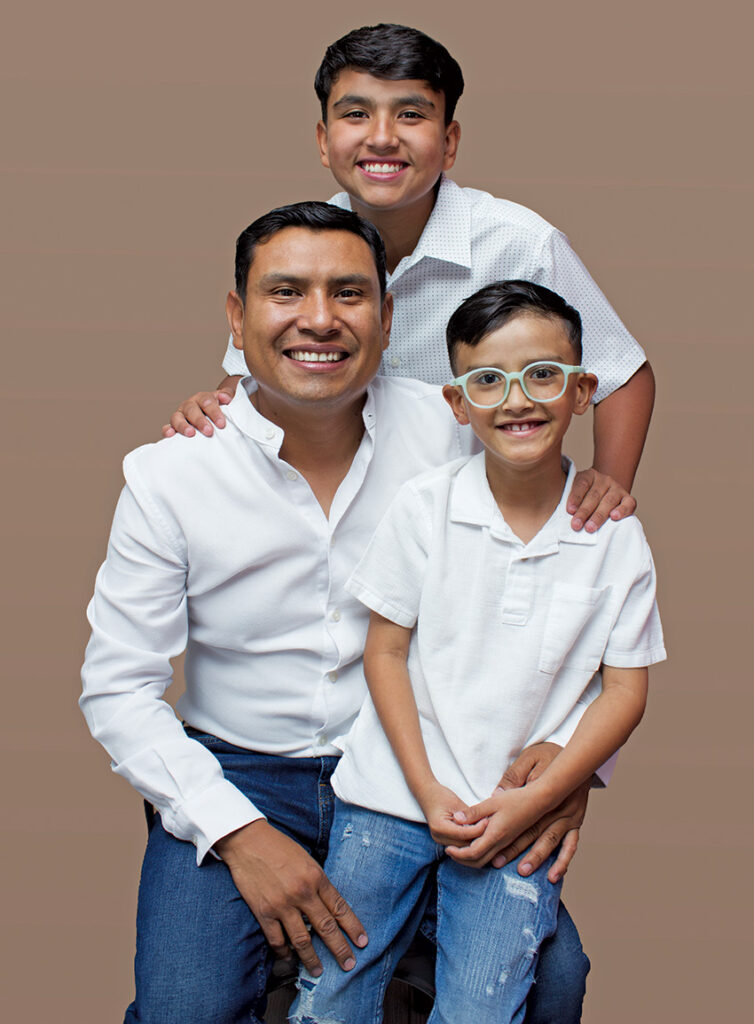
The challenge of parenting today
Pastor Iván Reveles recalls his beginnings and journey in pastoring, during which he helped others find their purpose in life.
In this Father’s Day edition, Visionarias talks with Pastor Ivan Alberto Reveles Carbajal, who tells us how he began preaching when he was only ten.
He is married to Mariana Longoria Muñoz and has two sons, Levi and Luca, 14 and 7, respectively.
Reveles Carbajal recalls that when he was seven years old, he gave his life to Christ after an aunt invited his family to a Christian church, where the children’s ministry teacher asked who wanted to receive Jesus in his heart, being Pastor Ivan, one of those who came to the front and after repeating the prayer “Jesus and said amen,” he felt something invade his body.
From that moment on, he underwent a radical transformation because he was a very rebellious child, bad-mouthed and spoiled by his grandparents. His father also taught him to be strong and not show weakness.
He also remembers that his uncle was a commander of the Federal Judicial Police, so he had always wanted to be a policeman. However, his uncle did not want him to get involved in that environment, so he frustrated his attempts to join the corporation.
His beginnings
Says the son of Alberto Reveles Caraveo and Susana Carbajal Orozco; on one occasion, a preacher saw him and told him that God had a purpose for him. The preacher prayed for him, and his gifts were activated. He began to preach; however, in the beginning, in his pastor, he did not find a spiritual guide but a spiritual competitor.
After this, he began to go to different churches to preach, supported by his parents and later by Brother Elias Serrano, who helped him, taught him, and traveled to many countries; he learned to study the Bible hermeneutics and to deepen in the Gospel. Although he sought to study theology in Ciudad Juarez, he could not enter any institute because he had finished high school at age 16 and then finished the Master’s degree in Pastoral Ministry at age 19.
His idea was not to preach anymore, but a Canadian missionary told him, “God says you are going to be a pastor. You will get married very soon, and your wife is in Ciudad Juarez.” After a meeting with Mariana, he fell in love with her, and after three months, they married.
Once married, he decided to start a customs agency; at first, they did very well economically, but God began to speak to him about the pastorate and closed the opportunities. In a dream, he asked him why he had closed all the doors, and he answered him: “So that you turn to heaven because your help is not around, it is me.”
So, at 22, he started the church with the support of his wife, parents, sisters, sister-in-law, and mother-in-law, whose house he used as a church.
God in his life
“God has been like a dad to me. He has been my best mentor and teacher; he has been in my day-to-day life,” says the pastor, who adds that in his early years in God, he listened to the voice that guided him. When his dad passed away, who was always his support, he began to walk the path of orphanhood. However, one day, he stopped seeing Jesus Christ as a boss or a mentor and began to see him as a father.
At present
The pastor considered that men today are in a complicated stage, and he mentioned: “I have to form husbands, fathers, leaders, real men. It is a task to teach them how to treat a woman with respect and honor, that she is not a sexual object, and that she was not created for their satisfaction.”
For this reason, he commented, “For me, being a man is a formation of character; therefore, today, he has a great responsibility in the face of machismo and feminism.”
In addition, he said that as a father, he advises instructing and listening to his children, “do not give advice that they are not asking for, invest time, and do not give them an open letter in technology, besides having a more open mind, to support them and understand what they are facing in the world.”
He said he prays with his children daily and then for them because he considers that the world “wants to take our role as parents, to form and support”; therefore, parents and pastors should help their children find their identity and purpose in life.
Pastor Iván Alberto Reveles Carbajal currently leads the Christian Church “Linaje Bendito,” located at Melquíades Alanís St. no. 6485, San Lorenzo, Ciudad Juarez, Mexico. 6485, San Lorenzo, Ciudad Juárez, Chihuahua. Under his guidance, the church continues to grow and help people find their purpose in life.
El Diván
‘Dejen que sea Dios el que haga las cosas’
Publicado
3 meses antesel
03/05/2024Por
Luz María Sotelo
La Pastora Alma Cristina de Santiago cuenta a Visionarias cómo conoció al Señor Jesucristo y sobrevivió a una vida de excesos.
A través de diversos medios diariamente conocemos historias de violencia, drogas y abuso, pero poco escuchamos sobre testimonios que hablan de sobrevivencia, como por ejemplo el de la Pastora Alma Cristina de Santiago, quien conoció a Dios cuando se encontraba en un fondo muy oscuro.
El enemigo en casa
Siendo la cuarta de cinco hermanas, Alma Cristina fue parte del abuso al que eran sometidas por su propio padre, un hombre al que describe como inteligente y muy preparado, por lo que a muchos les costó creer lo que era capaz de hacer a sus hijas, incluso a su madre, quien aún así decidió denunciarlo a la policía.
Cuenta que fue cuando tenía 10 años que su mamá se enteró de lo sucedido y a partir de ahí sus vidas cambiaron para siempre, empezando por perder la comodidad a la que estaban acostumbradas, pues era él quien llevaba el sustento a casa, mientras su madre se dedicaba a ellas.
Pero el encarcelamiento del hombre que se suponía debía protegerlas, no acabó con el martirio de las mujeres, pues ahora debían enfrentar las amenazas que la familia paterna les hacía, así como las necesidades que cada día se volvían más frecuentes.
Comienza la caída
La madre de la pastora sentía que las había traicionado y el tener que dejarlas solas para trabajar y poder darles de comer, creía que las había traicionado, por lo cual se refugió en el alcohol, lo que nubló el pensamiento de la pequeña Alma Cristina.
“Por ver a mi mamá triste y como lloraba empecé a llenar mi corazón como de mucha rabia y mucho rencor”, recuerda nuestra entrevistada.
Al crecer prácticamente solas, ella y sus hermanas, comenzaron a juntarse con supuestos amigos que las llenaban de regalos de dudosa procedencia, especialmente uno, el cual cuando ella cumplió 15 años le obsequió un auto, comprado con dinero producto de la venta de drogas.
Poco a poco Cristina comenzó hacer uso de las drogas y el alcohol a inmiscuirse en ese “ambiente”, pues creía que ahí se olvidaría de sus necesidades.
“Comenzamos a conocer a otro tipo de personas, gente de altos mandos, comenzamos a conocer gente que andaba movida en el narcotráfico muy tremendamente… ahí fue donde mis hermanas y yo entramos en esa vida y empezamos con el consumo y narcomenudeo en el narcotráfico”.
18 años después
Han pasado 18 años desde que Alma Cristina tocó fondo y con el tiempo logró sobrevivir la adversidad y superar ese mundo de droga y narcotráfico.
Ella nos cuenta que el amor y el deseo de estar con sus hijos la hizo agarrarse de la fe y el amor de Dios para poder cambiar, fue muy difícil pero no imposible, comenzó una vida entregada a la palabra de Dios, como también a la iglesia, se convirtió en guía y directora del centro de rehabilitación donde le cambió la vida, ahí se enamoró del líder que la recibió el pastor Fernando Hernández Marin y con quien formó la familia que tanto quería.
Ahora, ambos convertidos en pastores, sirven al Señor y están al frente de la congregación llamada Renovación en el Espíritu Santo, el templo está ubicado en las calles Andrés Ortiz y Alberto Álvarez número 9540, en Juárez Nuevo.
La pastora Alma Cristina y su familia trabajan con mujeres y hombres con problemas de adicciones, atienden comedores de niños de bajos recursos y son apoyo en su educación.
Llevan el evangelio a colonias o zonas sumidas en la drogadicción y trabajan de la mano con la Universidad Pedagógica Nacional del Estado de Chihuahua (UPNECH) Universidad Autónoma de Ciudad Juárez (UACJ), a cuyos alumnos ofrecen realizar prácticas en sus diversas actividades, todo tomados de la mano de Dios y con el objetivo de encaminar las familias.
“Creemos mucho en la restauración de la familia”, dice esta visionaria, quien hoy, después de ver a los ojos la maldad y el mundo oscuro, se dice afortunada, feliz, plena y muy agradecida con el Señor Jesucristo por haberlo conocido.

Let it be God to do things
Alma Cristina de Santiago tells Visionarias how she met the Lord Jesus Christ and survived a life of excess.
Through various media, we know daily stories of violence, drugs, and abuse, but little do we hear about testimonies that speak of survival, such as that of Alma Cristina de Santiago, who met God when she was in a very dark background.
The Enemy at Home
Being the fourth of five sisters, Alma Cristina was part of the abuse they were subjected to by her father, a man she describes as intelligent and very prepared; so many found it hard to believe what he was capable of doing to his daughters, even her mother, who still decided to denounce him to the police.
She says that it was when she was ten years old that her mother found out what had happened, and from then on, their lives changed forever. They started by losing the comfort to which they were accustomed since he was the one who brought home the livelihood, while her mother dedicated herself to them.
But the imprisonment of the man who was supposed to protect them did not put an end to the women’s martyrdom; for now, they had to face the threats made by their father’s family, as well as the needs that became more frequent every day.
The fall begins
Believing that she had betrayed them and had to leave them alone to work and feed them, her mother took refuge in alcohol, which clouded little Alma Cristina’s thoughts.
“Seeing my mother sad and crying, I began to fill my heart with anger and resentment,” recalls our interviewee.
Growing up practically alone, she and her sisters began to get together with friends who showered them with gifts of dubious origin, especially one who, when she turned 15, gave her a car, bought with money from the sale of drugs.
Little by little, Cristina began to get involved in that “environment” because she believed she would forget her needs there.
“We began to meet other types of people, people in high places, people from the police; we began to meet people who were involved in drug trafficking… that’s where my sisters and I entered that life and started with drug dealing, with drug trafficking”.
Facing death
But beyond getting everything that money can buy, Alma Cristina tells us that she lost herself in such a way that she lost her peace. Between drug and alcohol chases, an overdose, and even a forced abortion, she thought many times that she was going to die.
She tells us that, together with her partner, she began to set up several drug “little shops,” which her sisters and even her mother ended up taking care of, while the man who would eventually become the father of her children got involved in contract killings, which led to his death during the first wave of violence that hit this city.
It was at this stage that she had a complex addiction.
“God kept my life because God is great; I know he had a purpose for me,” she mentions.
Reaching the bottom
The strong addiction and feeling alone led her to give her children to a relative while she lived on the streets amid drugs and other dangers, which had her tired.
However, her 8-year-old sister led her to reflect on whether this was the life she wanted, although another of her sisters told her about Christ, who had come into her life and kept her sober.
On a visit to her home, she gave Cristina a pamphlet titled “Christ breaks the chains.” This upset Cristina.
“I left that day with her and started to cry a lot. I started to remember, until I talked with the Lord, ‘If you exist if you are God, if you have power, if you are that one, change me, do something in me. I don’t want to go on like this,’” She mentions that this is what he told her.
That same afternoon, she returned to her sister’s house, and with the help of a lady, she was taken to a rehabilitation center, where she finally accepted God’s call.
“I had the privilege of meeting the Lord 18 years ago, around the age of 22, when my life, at that young age, was destroyed. I ended up terribly… I no longer wanted to live. I believed that everything was over, that there was no longer a future, and that there was no longer something to live for,” she says.
Rebirth
When she arrived at this site, she met one of its leaders and a couple who took her to their home. There, she was guided to get ahead and recover her children, who could live with her.
On the verge of tears, she confides that at that point, the only thing she wanted was to be with them, play with them, take them to school, and feed them, so she accepted all the conditions of the center to recover and be able to have them by her side.
18 years later
It has been 18 years since Alma Cristina hit rock bottom. With time, she overcame adversity and became a guide and director of the center, which changed her life; there, she fell in love with the leader who received her and with whom she formed the family she loved so much.
Now, both have become pastors. They serve the Lord and are at the head of the congregation that attends Renovación en el Espíritu Santo, a temple located at 9540 Andres Ortiz and Alberto Alvarez streets in Juarez Nuevo.
Alma Cristina and her family work with women and men with addiction problems, attend soup kitchens for low-income children, and support their education.
They take the gospel to neighborhoods or areas plunged in drug addiction and work hand in hand with the Universidad Autónoma de Ciudad Juárez (UACJ), whose students are offered internships in their various activities, all hand in hand with God and to guide families.
“We believe very much in the restoration of the family,” says this visionary, who today, after looking the enemy in the eye, says she is fortunate, happy, fulfilled, and grateful to the Lord for having met him.



